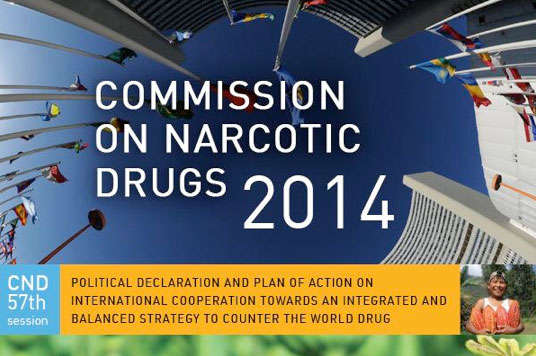Earlier this month I went to Vienna for the 57th session of the Commission on Narcotic Drugs (CND), part of the United Nations Office on Drugs and Crime (UNODC). There I chaired a working group that presented a set of recommendations to the CND concerning the most appropriate, scientifically informed way to approach the problem of substance use disorders: as a medical, not a legal, issue.

It was a very productive and encouraging meeting. I and the other members of the Scientific Consultation Working Group on Drug Policy, Health and Human Rights were in complete agreement that substance use disorders are a disease—caused by developmental, biological, neuropsychological, and psychosocial factors—and thus should be addressed within a public health framework.
We recommended to the CND that healthcare systems should take primary responsibility for addressing substance abuse and addiction through implementation of evidence-based treatment and prevention, as well as screening in primary care settings. We also recommended that health ministries of respective countries should support such an approach to dealing with substance use disorders by allocating sufficient funds to meet their countries’ prevention and treatment needs.
No one would imagine that enforcing tough legal sanctions on people with a chronic condition such as heart disease could help address that illness or its causes, or help prevent it in others. Criminal justice is clearly not the way forward in dealing with substance use disorders either; putting people with addictions in prison and perpetuating various legal barriers to seeking or providing substance abuse treatment are only hindrances. Addiction is a medical issue, and the member countries of the United Nations will make progress in addressing it when it becomes the full responsibility of their healthcare systems.
 View an on site interview with Dr. Volkow at the Commission session
View an on site interview with Dr. Volkow at the Commission sessionIn 2016 the UN General Assembly will hold a Special Session on the World Drug problem. Our committee recommended that, in preparation for this, the UNODC should support the CND to develop a global integrated strategy on prevention and treatment of substance use disorders in collaboration with the World Health Organization. We also recommended that the CND form a permanent council of scientific advisors on these issues.
The recommendations of our committee crystalize a paradigm shift in how the problem of substance abuse and addiction are viewed by modern societies. Shifting the problem of drug abuse and addiction from the legal (or moral) sphere to that of science and medicine, where it properly belongs, is a crucial step toward successfully tackling the problem.
